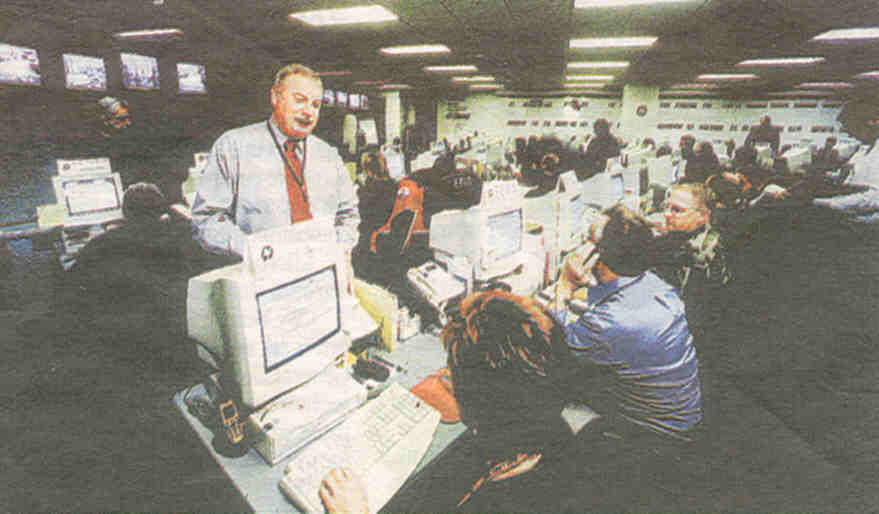 |
|
|
|
|
|
27 February-13 March 2003: After several months of deadlock, the Greek government on February 27 declared a consortium headed by US defence contractor Science Applications International Corporation (SAIC) its preferred bidder in the key security-command system tender for the Athens 2004 Olympics, known as C41 (Communications, Computers, Command, Control and Intelligence). But the deal was still up in the air as it hinged on whether the SAIC consortium would lower its 317.9 million euro bid to the 270 million euros the government was prepared to offer for the centrepiece of its 1 billion euro security budget. The tender covered the construction and operation |
|
|
(under Greek supervision) of a computerised security nerve-cevtre and the supply of communication equipment capable of integrating all intelligence signals and relay ports into a single interactive database. SAIC was therefore appointed as the 'temporary contractor' until the government could convince its partner to narrow the scope of the contract in return for a reduced price. The discount could include fewer computers or security cameras but also fewer ports under electronic surveillance. The SAIC consortium included Siemens (Germany/Greece), General Dynamics (US), Honeywell, ITT Industries, SAIC-Telcordia, E Team (US), EADS (France/Germany), ALTEC, Pouliadis Group, DIEKAT Construction, IBM Hellas (Greece), Rafael Armament Development and Elbit Systems (Israel) as suppliers. If SAIC failed to reduce its price, the government threatened to reopen talks with the losing bidder - a consortium headed by the French-British company Thales SA and US defence contractor Raytheon, which had submitted a slightly higher bid of 318.3 million euros. After two more weeks of bargaining, the government finally announced on March 13 that the C41 contract goes to the SAIC consortium at a a lower cost of 254.9 million euros that would cover 'a very significant period' after the Games. SAIC vice-president Steve Weiss said he didn't foresee 'any problem delivering the system and having enough time to do all the training'. But 17 months later, Athens staged one of the most successful (and 'safe') Olympics in modern history without the C41 nerve-centre in place. Beset from the outset by technical glitches in the equipment and software furnished by subcontractors, delivery of the system was delayed for another two years after the Games, by which time its usefulness was put in doubt, as Greece faced new terrorist threats, including a rocket attack on the US embassy on January 12 this year. The downgraded C41 bill ultimately amounted to around 190 million euros, a small fraction of the 12 billion euros which the Greek taxpayer has paid for the 2004 Olympics.
|
|
|
(Posting date 7 April 2006) HCS encourages readers to view other articles and releases in our permanent, extensive archives at the URL http://www.helleniccomserve.com/contents.html. |
|
|
|
|
2000 © Hellenic Communication Service, L.L.C. All Rights Reserved.
http://www.HellenicComServe.com |
|


